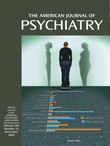Caffeine Dependence in Combination With a Family History of Alcoholism as a Predictor of Continued Use of Caffeine During Pregnancy
Abstract
OBJECTIVE: The purpose of the study was to examine whether caffeine dependence and a family history of alcoholism are associated with continued use of caffeine during pregnancy. METHOD: Forty-four women seeking obstetrical care in an office-based practice completed questionnaires and provided saliva samples at three prenatal visits occurring 2–3, 3–4, and 7 months postconception. On visit 1, the patients received the physician’s instructions to stop using caffeine. Structured interviews were used to assign a diagnosis of caffeine dependence (lifetime) and to identify family history of alcoholism. Outcome measures included self-reported levels of caffeine use and saliva caffeine levels at the three prenatal visits. RESULTS: Although most women eliminated or substantially reduced their caffeine consumption between pregnancy awareness and prenatal visit 1, those with a lifetime diagnosis of caffeine dependence and a family history of alcoholism had higher levels of caffeine use and lower rates of abstinence throughout pregnancy. Saliva caffeine levels confirmed these effects. Withdrawal symptoms, functional impairment, and craving were cited as reasons they failed to eliminate or cut back on caffeine use. Fifty percent of the women with both a lifetime diagnosis of caffeine dependence and a family history of alcoholism continued to use caffeine in amounts (>300 mg/day) greater than those considered safe during pregnancy, compared to none of the women without caffeine dependence and a family history of alcoholism. Women with a lifetime diagnosis of caffeine dependence and a family history of alcoholism also reported higher rates of past cigarette smoking and problematic alcohol use. CONCLUSIONS: Caffeine-dependent women with a family history of alcoholism were not able to follow their physician’s advice to reduce or eliminate caffeine consumption during pregnancy, despite their wanting to do so. This subgroup may require more intensive intervention to ensure caffeine abstinence and may be at greater risk for abuse of or dependence on other drugs.



